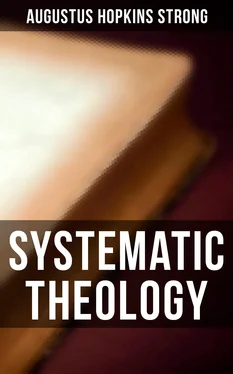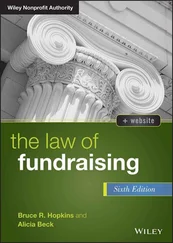Augustus Hopkins Strong
Published by

Books
- Advanced Digital Solutions & High-Quality eBook Formatting -
musaicumbooks@okpublishing.info
2021 OK Publishing
EAN 4064066382506
Volume 1 VOLUME 1 Table of Contents
Volume 2
Volume 3
Table of Contents Table of Contents Volume 1 VOLUME 1 Table of Contents Volume 2 Volume 3
Preface
Part I. Prolegomena.
Chapter I. Idea Of Theology.
I. Definition of Theology.
II. Aim of Theology.
III. Possibility of Theology.
IV. Necessity of Theology.
V. Relation of Theology to Religion.
Chapter II. Material of Theology.
I. Sources of Theology.
II. Limitations of Theology.
III. Relations of Material to Progress in Theology.
Chapter III. Method Of Theology.
I. Requisites to the study of Theology.
II. Divisions of Theology.
III. History of Systematic Theology.
IV. Order of Treatment in Systematic Theology.
V. Text-Books in Theology.
Part II. The Existence Of God.
Chapter I. Origin Of Our Idea Of God's Existence.
I. First Truths in General.
II. The Existence of God a first truth.
III. Other Supposed Sources of our Idea of God's Existence.
IV. Contents of this Intuition.
Chapter II. Corroborative Evidences Of God's Existence.
I. The Cosmological Argument, or Argument from Change in Nature.
II. The Teleological Argument, or Argument from Order and Useful Collocation in Nature.
III. The Anthropological Argument, or Argument from Man's Mental and Moral Nature.
IV. The Ontological Argument, or Argument from our Abstract and Necessary Ideas.
Chapter III. Erroneous Explanations, And Conclusion.
I. Materialism.
II. Materialistic Idealism.
III. Idealistic Pantheism.
IV. Ethical Monism.
Part III. The Scriptures A Revelation From God.
Chapter I. Preliminary Considerations.
I. Reasons a priori for expecting a Revelation from God.
II. Marks of the Revelation man may expect.
III. Miracles, as attesting a Divine Revelation.
IV. Prophecy as Attesting a Divine Revelation.
V. Principles of Historical Evidence applicable to the Proof of a Divine Revelation.
Chapter II. Positive Proofs That The Scriptures Are A Divine Revelation.
I. Genuineness of the Christian Documents.
II. Credibility of the Writers of the Scriptures.
III. The Supernatural Character of the Scripture Teaching.
IV. The Historical Results of the Propagation of Scripture Doctrine.
Chapter III. Inspiration Of The Scriptures.
I. Definition of Inspiration.
II. Proof of Inspiration.
III. Theories of Inspiration.
IV. The Union of the Divine and Human Elements in Inspiration.
V. Objections to the Doctrine of Inspiration.
Part IV. The Nature, Decrees, And Works Of God.
Chapter I. The Attributes Of God.
I. Definition of the term Attributes.
II. Relation of the divine Attributes to the divine Essence.
III. Methods of determining the divine Attributes.
IV. Classification of the Attributes.
V. Absolute or Immanent Attributes.
VI. Relative or Transitive Attributes.
VII. Rank and Relations of the several Attributes.
Chapter II. Doctrine Of The Trinity.
I. In Scriptures there are Three who are recognized as God.
II. These Three are so described in Scripture that we are compelled to conceive of them as distinct Persons.
III. This Tripersonality of the Divine Nature is not merely economic and temporal, but is immanent and eternal.
IV. This Tripersonality is not Tritheism; for, while there are three Persons, there is but one Essence.
V. The Three Persons, Father, Son, and Holy Spirit, are equal.
VI. Inscrutable, yet not self-contradictory, this Doctrine furnishes the Key to all other Doctrines.
Chapter III. The Decrees Of God.
I. Definition of Decrees.
II. Proof of the Doctrine of Decrees.
III. Objections to the Doctrine of Decrees.
IV. Concluding Remarks.
Table of Contents
The present work is a revision and enlargement of my “Systematic Theology,” first published in 1886. Of the original work there have been printed seven editions, each edition embodying successive corrections and supposed improvements. During the twenty years which have intervened since its first publication I have accumulated much new material, which I now offer to the reader. My philosophical and critical point of view meantime has also somewhat changed. While I still hold to the old doctrines, I interpret them differently and expound them more clearly, because I seem to myself to have reached a fundamental truth which throws new light upon them all. This truth I have tried to set forth in my book entitled “Christ in Creation,” and to that book I refer the reader for further information.
That Christ is the one and only Revealer of God, in nature, in humanity, in history, in science, in Scripture, is in my judgment the key to theology. This view implies a monistic and idealistic conception of the world, together with an evolutionary idea as to its origin and progress. But it is the very antidote to pantheism, in that it recognizes evolution as only the method of the transcendent and personal Christ, who fills all in all, and who makes the universe teleological and moral from its centre to its circumference and from its beginning until now.
Neither evolution nor the higher criticism has any terrors to one who regards them as parts of Christ's creating and educating process. The Christ in whom are hid all the treasures of wisdom and knowledge himself furnishes all the needed safeguards and limitations. It is only because Christ has been forgotten that nature and law have been personified, that history has been regarded as unpurposed development, that Judaism has been referred to a merely human origin, that Paul has been thought to have switched the church off from its proper track even before it had gotten fairly started on its course, that superstition and illusion have come to seem the only foundation for the sacrifices of the martyrs and the triumphs of modern missions. I believe in no such irrational and atheistic evolution as this. I believe rather in him in whom all things consist, who is with his people even to the end of the world, and who has promised to lead them into all the truth.
Philosophy and science are good servants of Christ, but they are poor guides when they rule out the Son of God. As I reach my seventieth year and write these words on my birthday, I am thankful for that personal experience of union with Christ which has enabled me to see in science and philosophy the teaching of my Lord. But this same personal experience has made me even more alive to Christ's teaching in Scripture, has made me recognize in Paul and John a truth profounder than that disclosed by any secular writers, truth with regard to sin and atonement for sin, that satisfies the deepest wants of my nature and that is self-evidencing and divine.
I am distressed by some common theological tendencies of our time, because I believe them to be false to both science and religion. How men who have ever felt themselves to be lost sinners and who have once received pardon from their crucified Lord and Savior can thereafter seek to pare down his attributes, deny his deity and atonement, tear from his brow the crown of miracle and sovereignty, relegate him to the place of a merely moral teacher who influences us only as does Socrates by words spoken across a stretch of ages, passes my comprehension. Here is my test of orthodoxy: Do we pray to Jesus? Do we call upon the name of Christ, as did Stephen and all the early church? Is he our living Lord, omnipresent, omniscient, omnipotent? Is he divine only in the sense in which we are divine, or is he the only-begotten Son, God manifest in the flesh, in whom is all the fulness of the Godhead bodily? What think ye of the Christ? is still the critical question, and none are entitled to the name of Christian who, in the face of the evidence he has furnished us, cannot answer the question aright.
Читать дальше













